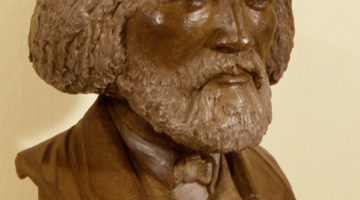 First of a two-part series: If African Americans were a nation, we would be the ninth richest country in the world. That is to say, we would be a developed nation – not a Third World country. In fact, we would be richer than Spain, a country that is historically known for its colonization of vast territories in the world.
First of a two-part series: If African Americans were a nation, we would be the ninth richest country in the world. That is to say, we would be a developed nation – not a Third World country. In fact, we would be richer than Spain, a country that is historically known for its colonization of vast territories in the world.
The African-American educational system is the second largest in the world. With more than 50 colleges and universities, only the United States itself as a whole has more institutions of higher learning and even those are fully available to African Americans. The result is that, as a people, we are the most educated racial/culture group in the world, mainly because whereas other groups tend to educate their elite, the African American community tends toward mass education.
We are often misled by statistics that show a “lag” in educational achievements of African Americans and other groups. The researchers, either through ignorance or on purpose, do not control for variance and, therefore, lump the very poor and educationally disadvantaged African Americans with those of the middle and upper strata of other groups.
Because other groups seldom include their poor and disadvantaged in this equation, the researchers are comparing a solid upper stratum with a composite of all of the African-American community.
It is, I believe, purposefully misleading and even we African Americans ourselves are usually fooled by this trick. We have a very strong heritage of educating ourselves and our upward mobility is proof positive of this fact.
When black poets, novelists, anthropologists and artists descended on Harlem in the 1920s as if it were our Mecca, the African-American community provided this country with its only renaissance. It produced an exceedingly rich literature and eloquently informed the world that a black intelligentsia had arrived.
When Sir Winston Churchill appeared before the joint Houses of Congress to literally beg the United States to help Europe defeat Hitler, he did not try to persuade Congress with quotes from Longfellow or Thoreau but from Claude MacKay, an African American of Jamaican descent and a Harlem Renaissance poet. Churchill quoted from If we must die.
African Americans provided this country with its first original music. Historically, Americans used European music as its cultural artifact. Then African Americans introduced the world to spirituals, then blues, then gospel, then jazz, then rock and roll, then disco and now rap — which I have yet to embrace.
African Americans introduced the world to dances such as as the Cakewalk, the Linda Hop, the Charleston, the Black Bottom, the Jitterbug, the Twist, Walking the Dog, the Stroll, the Hully Gully, the Electric Slide and more.
African Americans excel in sports. From the first time African Americans were allowed to play professionally, we have been stars of our respective sports. When we were allowed to integrate universities, athletics programs that are successful are those that utilize the talents of gifted African-American athletes.
The only food that is considered American, other than hot dog and apple pie, is soul food. When African Americans were forbidden to eat the very food they produced, prepared and served, they took the discarded portions and created a cuisine. We also taught the world how to fry chicken that would taste so good the filet mignon would have to take a back seat.
In spite of the negative reactions to “Ebonics,” African Americans continue to make English a living and colorful language. Unlike German and some of the Eastern languages, traditional English is limited in expressing thoughts, ideas and feelings. African Americans solved that problem by introducing slang. Slang has caught on and even the usually proper British find it useful.
These represent only a small portion of African-American heritage. However, it is enough to show that we are a strong and resilient people. We have survived generations of slavery and more generations of legalized injustice. And, even today, we have to struggle in a way that no other group has to struggle and it is this challenge that confronts us as we move more into the 21st century.
Gilbert L. Raiford is a retired social worker who has had a long career in teaching and working for the U.S. Department of State. He may be reached at graiford@hotmail.com












No Comment